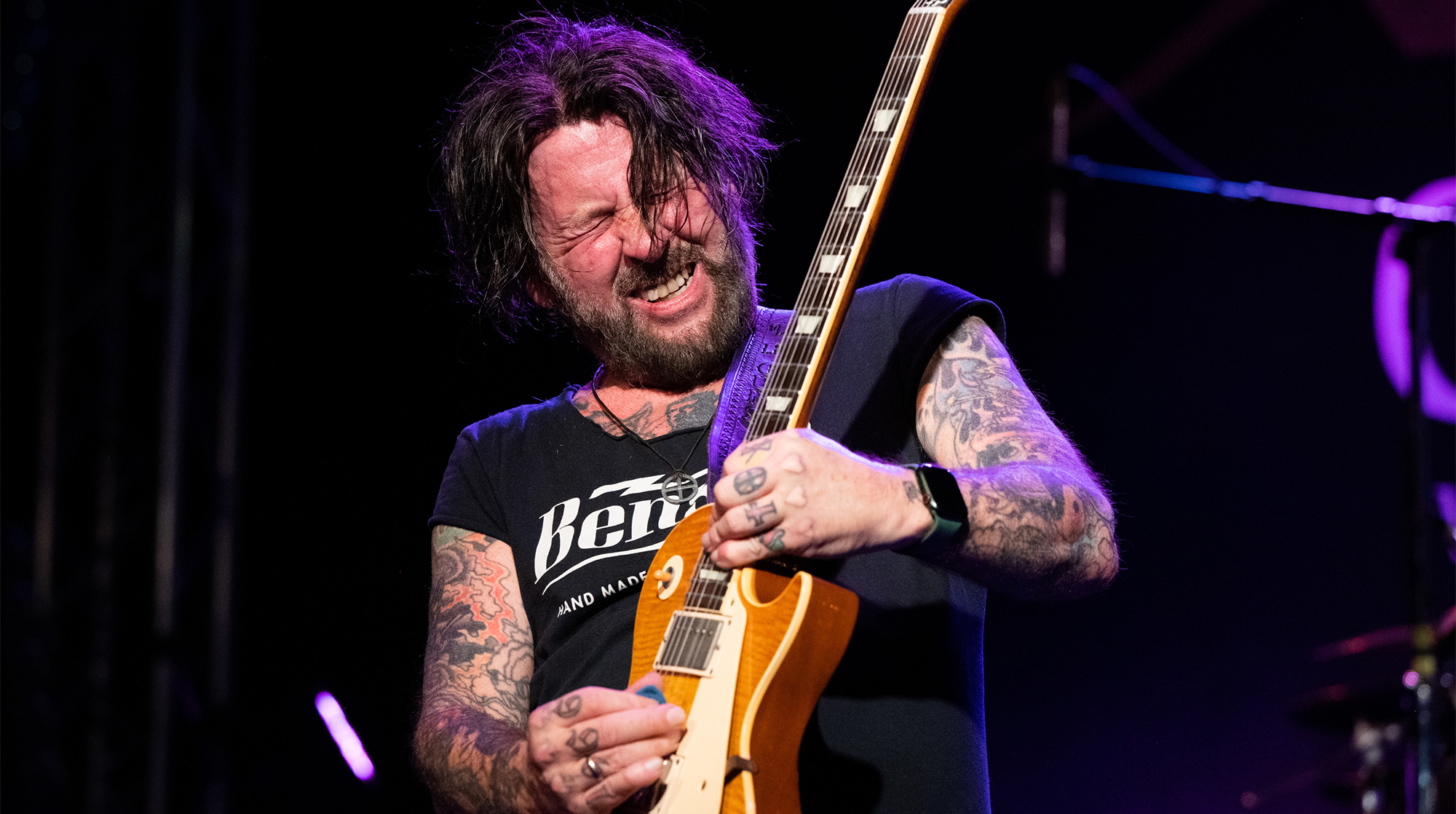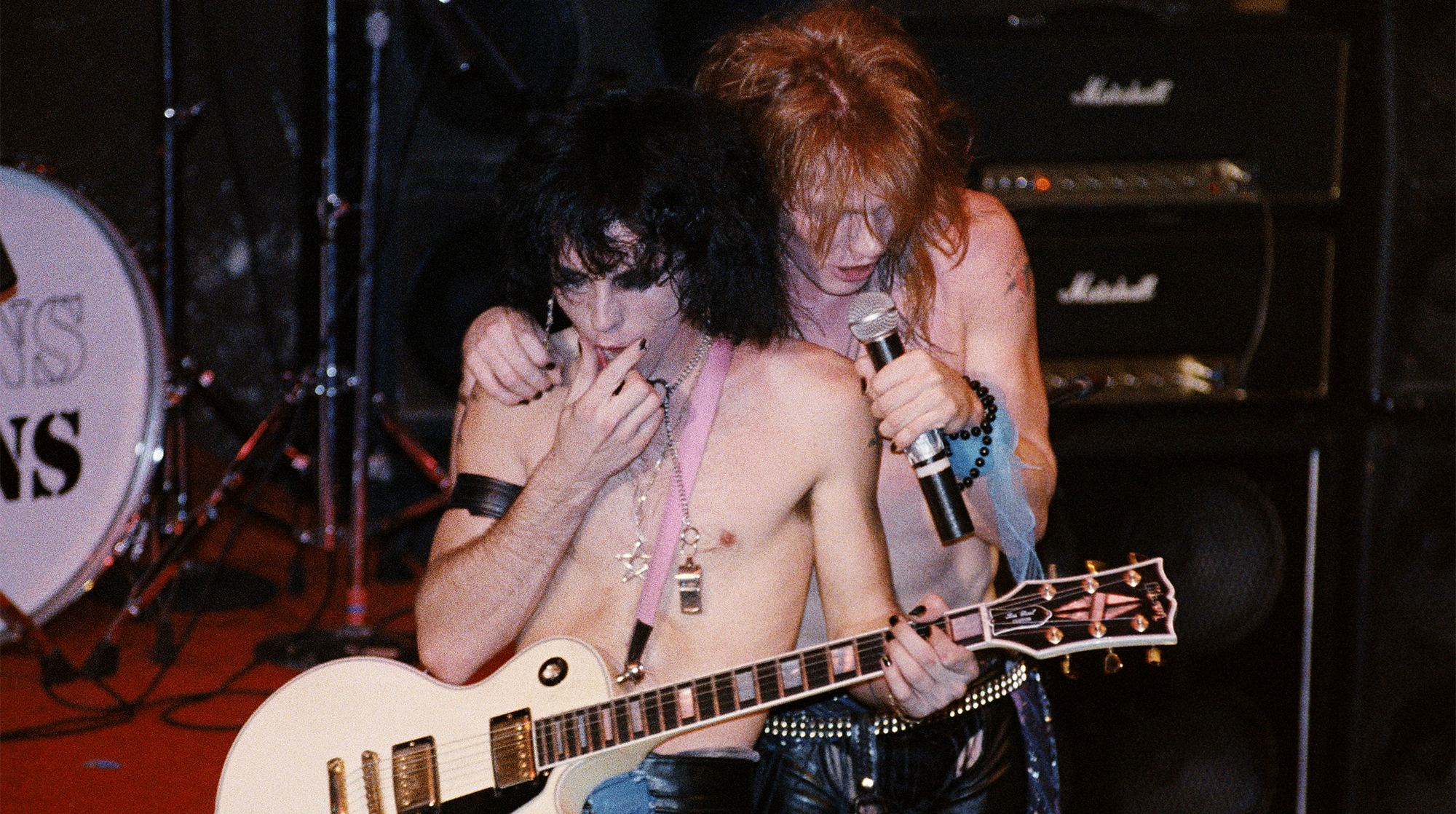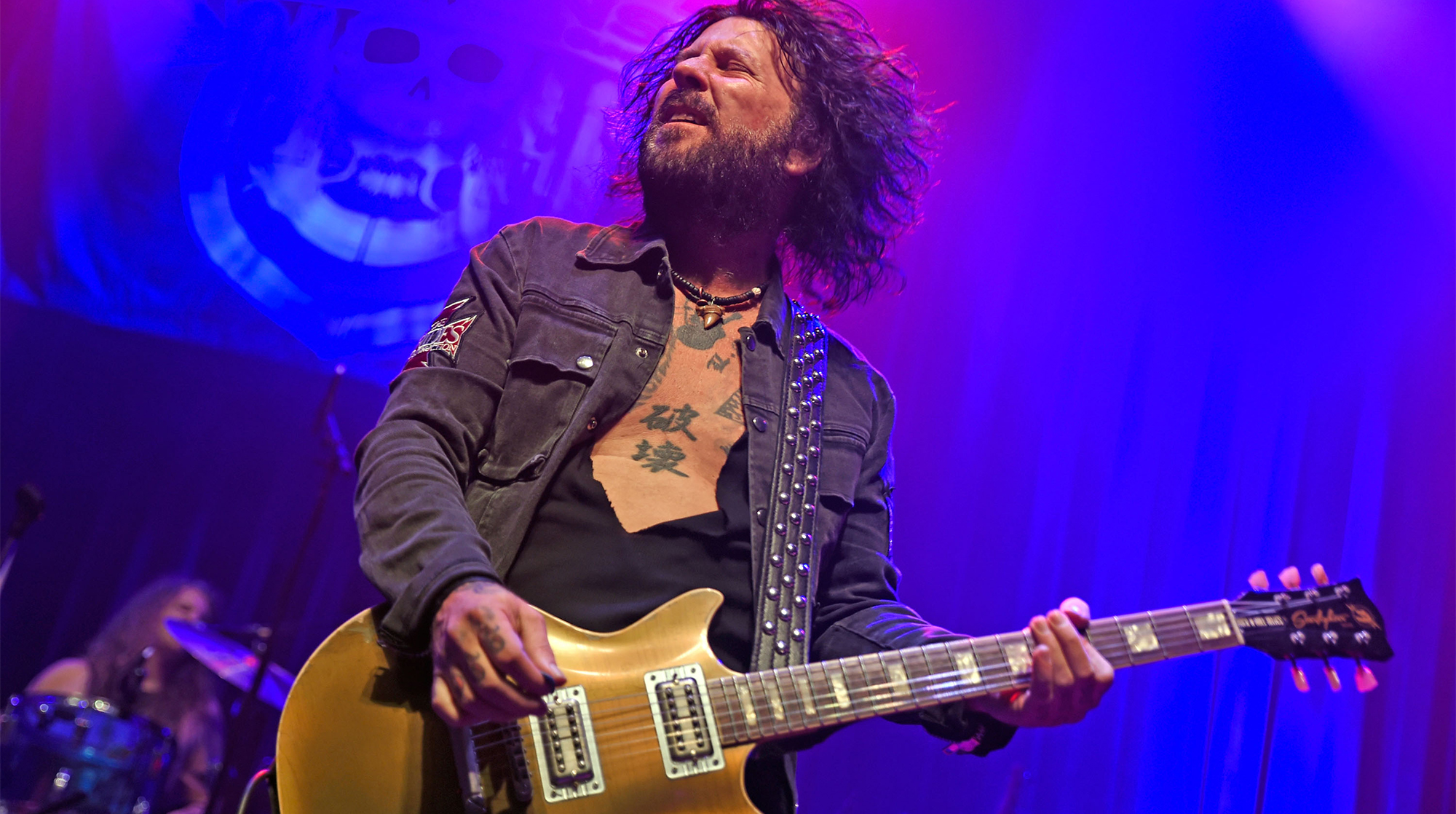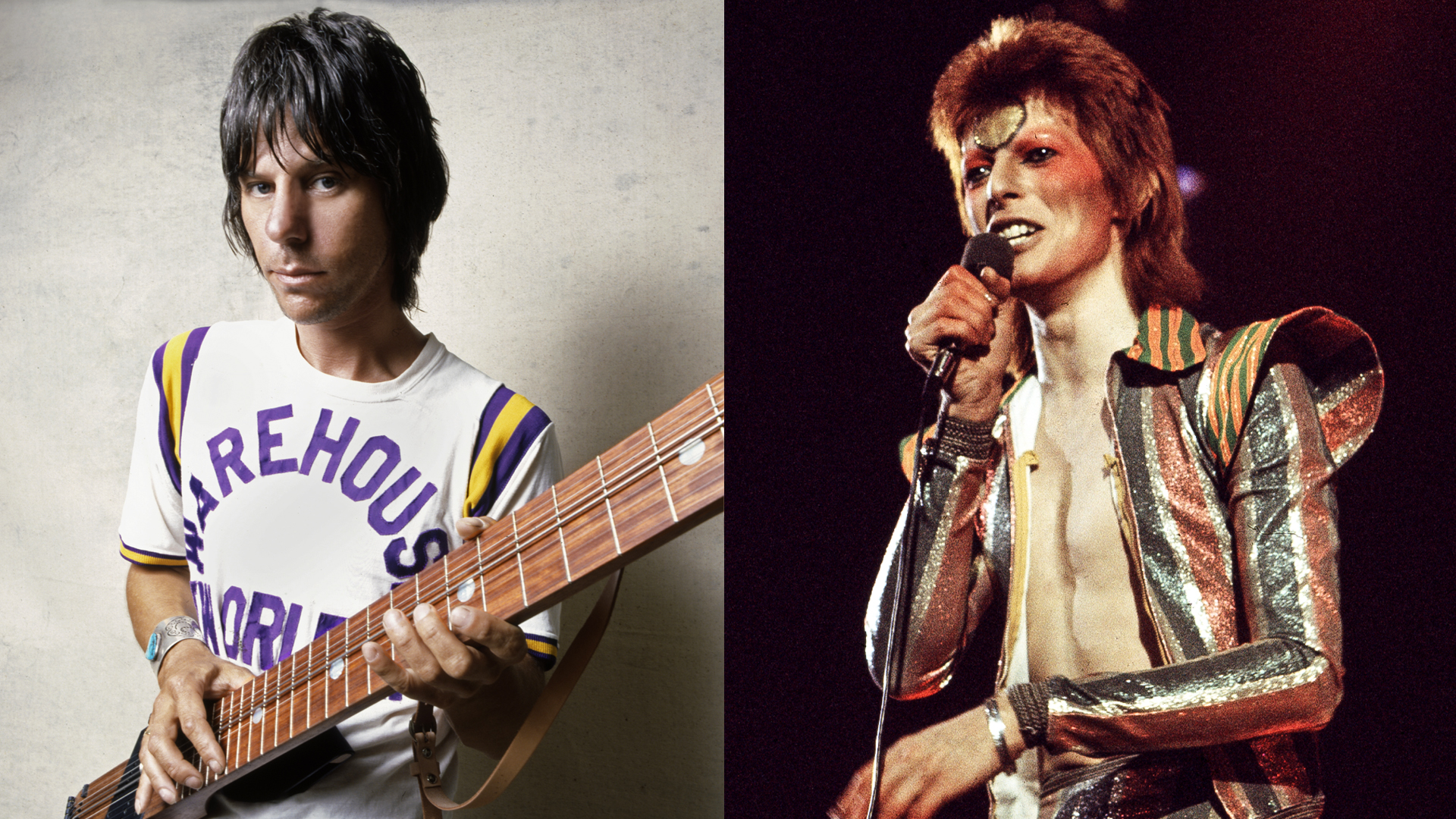“Guns N’ Roses is what broke us all away from Mötley Crüe and Ratt... stuff we didn't want to be lumped with in.” Tracii Guns on L.A. Guns' long run — and why Slash was the right choice for GN’R

It’s a Saturday afternoon, and guitarist Tracii Guns is seated in the back of a tour bus. This is where he’s spent most of his time since March, when he and his band, L.A. Guns, hit the road in the U.S. After a short break in June, he and the group will be back at it until October, and chances are they’ll be booked through the end of the year.
“All the real work gets done between touring,” he says. “You write songs, you record, you sign the contracts, you do the merch — you do all that stuff. Then, all of a sudden, you're thrown out into the total chaos of the road. That’s when it all goes crazy and it’s impossible to schedule anything, because things keep changing. That’s just the way it is.”
Change has been a near-constant for the band during its 42-year-career. L.A. Guns have been through something like 30 members, and that’s not even counting the period in the early ‘80s when they merged with Axl Rose’s Hollywood Rose to become Guns N’ Roses, which the guitarist famously quit in 1985. There were multiple breakups and reunions, and between 2006 and 2012 there were two versions of L.A. Guns: one led by Guns and the other run by lead singer Phil Lewis.
Guns and Lewis got back together in 2017, and from all accounts, their relationship appears to be solid. In 2023, they recorded a ripping set, Black Diamonds, with guitarist Ace Von Johnson, bass guitar player Johnny Martin and studio drummer Adam Hamilton, and the same lineup checks in on the band’s latest release, Leopard Skin.
It’s a frisky and feisty, good-natured album, one that throws elements of AC/DC, Zeppelin, the Stones and ’70s glam into a vacuum-sealed bag. Nearing the age of 60, Guns still has a seemingly inexhaustible supply of inventive and energetic electric guitar riffs up his sleeve. Indeed, on the opening one-two punch of “Taste It” and “Lucky Motherfucker,” he conducts a veritable masterclass of uproarious licks.
“I actually get scared when I realize I have to come up with new material,” he says. “If you have to fulfill a contract, you’ll get that email with the deadline. That’s when I start to panic, like, Oh, shit, what am I gonna do?”
Despite the terror, however, the prospect of looming deadlines seem to focus his creativity. Even so, Guns says, “We won’t send anything out till three or four of us are satisfied and the music isn’t boring anywhere.” He smiles. “Rule of thumb: Don’t be boring.”
All the latest guitar news, interviews, lessons, reviews, deals and more, direct to your inbox!
Let’s go back to the early ’80s. Was the Sunset Strip a minefield of rock bands looking to be the next Mötley Crüe or Van Halen?
That's fairly accurate. It was definitely like that when we put the original L.A. Guns together, which was before Guns N’ Roses and before Axl was in the band. We wanted to be Ozzy meets the Scorpions. I saw Mötley Crüe at the Troubadour, and I was like, “Whoa, that is so loud!” They were scary looking, too.
Suddenly, everybody was loud and scary looking. They really broke through the ice. They were kind of the end of the hardcore punk rock L.A. scene. Suddenly, all these long-haired punk rockers were playing extreme-sounding metal.
Guitar-wise, where did you fit in? You weren't exactly trying to be the next Eddie, so what was your lane?
It was weird because I really was into Pat Smear from the Germs, but I was also into Jimmy Page and Randy Rhoads and Joe Perry and Ritchie Blackmore. I was really into Blackmore.
Nobody puts Ritchie Blackmore and Pat Smear together.
Or Johnny Thunders and Michael Schenker. I loved Johnny Thunders’ attitude, like, “I might suck, but I’m awesome.” Snotty muso players laughed at him because he didn’t sound like Eddie Van Halen, but he didn’t care. I didn’t care either. Maybe because I was an older teenager and kind of stupid, but I thought, Nobody does what I do.
When you hired Axl Rose and L.A. Guns became Guns N’ Roses, did you and Axl share a common musical vision?
Axl and I were the best of friends. And then things got weird, but our vision was identical."
— Tracii Guns
We definitely did. We were the best of friends. And then things got weird, but our vision was identical. Then we brought Izzy [Stradlin] back into the mix. He was just my roommate, and we never played together per se, but we never stopped talking about what was cool.
It was all about being cool. I found that Axl was a very empathetic person when it comes to the vocal style he admires — like Dan McCafferty from Nazareth, and obviously Bon Scott and Brian Johnson. He loved Blackie Lawless. I was always forcing Robert Plant down Axl’s throat. He didn't grow up a big Zeppelin fan, but he knew I was a big Zep head. When Axl was in L.A. Guns, we were a metal band. We were straight-up metal.
What was the vibe on the band around town? Were labels scouting you guys?
It was so weird. Toward the end of L.A. Guns and becoming Guns N’ Roses, we had built our audience. We weren’t savvy about the business. We never thought we'd get signed. We never even talked about it. But suddenly we had all these guys hanging around – “I’m from this label, that label, blah, blah, blah.” When I left, Guns N’ Roses got signed pretty quick.
Your parting with Axl wasn’t entirely amicable. Can we say that?
People can Google that shit. I turned that question down 117 times in the last three months. People know. I'm trying to promote L.A. Guns, not some argument over Ecstasy.

Did you have a sense that Slash was going to replace you? How did you feel about that?
Oh yeah. When I left, I knew Slash was going to be the guy because he was in Hollywood Rose. It was the right thing to do. He was my guitar buddy growing up, since we were 11 years old. Him coming in was just going to happen.
So I left and reformed L.A. Guns, and it was the greatest thing because everything that we did leading up to the signing of Guns N’ Roses led to the signing of L.A. Guns six months later.
Nothing about what went down changed your relationship with Slash?
No, no, no. The only two people that argued for the next three months were Axl and me, and then we were fine.
Before you released the first L.A. Guns album, Guns N’ Roses started to take off. You still had no regrets about leaving?
I don’t regret leaving Guns N’ Roses. They were awesome with Slash. How could I have regret when half the band’s name is my name? I’m arguably their biggest fan of all time.
I remember we were mixing our first record, and I got a cassette of Appetite from Geffen. I went and listened to it by myself in Studio A, and I was like, “Fuck, this is so good.”
I got the other guys and told them, “You guys gotta listen to this.” I loved “It’s So Easy.” I never heard that song before, and I was like, “Goddamn, that's fucking cool.”
I'm listening to it with the guys, and they pretended they didn't get it, but I told them, “No, no, no. This is fucking awesome.” They didn't believe in it, but I did.
I don’t regret leaving Guns N’ Roses. They were awesome with Slash. How could I have regret when half the band’s name is my name?"
— Tracii Guns
Based on that success, I knew it was a clear channel for L.A. Guns, because to me, Guns N’ Roses is what broke us all away from Mötley Crüe and Ratt and a lot of the other stuff that we didn't want to be lumped with in. The only way to have success is to not be like somebody else.
The first two L.A. Guns albums went Gold. A lot of people consider that period as being the classic lineup of the band. Do you agree?
Of course I agree. Every band and situation is different. It's like with Iron Maiden: Paul Di'Anno on the first two records, which is what I love — I think that's the greatest Maiden period. They went with different guitar player, different singers, and obviously with Bruce they're huge. Sammy Hagar joins Van Halen — huge.
As you said, you were a fan of punk back in the ’80s. How did you feel when grunge came in?
I felt the same way. I was like, “This is killer!”
Grunge made life difficult for a lot of bands associated with the Sunset Strip.
I think it opened the door. If the ‘80s were the party, then Nirvana and Soundgarden and Alice in Chains were the hangover. Everything got sad and meaningful, while the previous rock scene wasn't very meaningful. I mean, sure, there was “Every Rose Has its Thorn” and “The Ballad of Jayne” and “Sweet Child O’ Mine," but other than that, it was about getting laid and whatever.
We were never big enough for grunge to affect our numbers. We just kept making records and touring. Things pretty much stayed the same.

Do you think you’re a better guitar player than you were 30 years ago?
I'm a more educated player. Does that make you better? I don't know… It makes me be able to sit with a guitar when I'm recording and have an alternative point of view, whether it's rhythmically or melodically. I have more options now because I'm better educated.
On the other hand, is there something to be said for naivete? When you're young, you do it because it feels good. When you’re older, you tend to get more cerebral.
I would agree with that. To me, that was the beauty of making those first couple of records. I was just flying — hit the button and go. I think there's something to be said for the energy of youthful guitar playing.
I talked about this with Eddie Van Halen. I was, like, 26 or 27, so he must have been 36 or 37. We were talking about he said, “You’re still young. You're only on your third record, so you can do whatever you want.” I said, “Yeah, but so can you.” He said, “Yeah, but I got my own studio now. I know what a compressor does now. I know what a delay does now. I know all these things… ”
That was the beauty of making those first couple of records. There's something to be said for the energy of youthful guitar playing."
— Tracii Guns
You mentioned how you were flying on the first couple of L.A. Guns records. A lot of people feel the same about the first three Van Halen records.
Yeah, it was an explosion. That's the greatest thing about a band that has something new to say, especially that combination of David Lee Roth and Eddie Van Halen. Out of the gate, it was like, “Whoa, I like this!”
You talked about how you get scared when you have to write a new record. Do new ideas come to you as easily as when you were younger?
I think that's the beauty of me embracing and researching different styles. I continue to go down the rock and roll rabbit hole. I feel like I've kind of maxed out on metal in a lot of ways. But I really love the guitar, and I really love loud amplification. Am I scared? No. I'm scared that I'm going to be 60 next year, but as far as music, the only thing I think I'd be scared of other than getting old is being homeless.

Joe is a freelance journalist who has, over the past few decades, interviewed hundreds of guitarists for Guitar World, Guitar Player, MusicRadar and Classic Rock. He is also a former editor of Guitar World, contributing writer for Guitar Aficionado and VP of A&R for Island Records. He’s an enthusiastic guitarist, but he’s nowhere near the likes of the people he interviews. Surprisingly, his skills are more suited to the drums. If you need a drummer for your Beatles tribute band, look him up.

